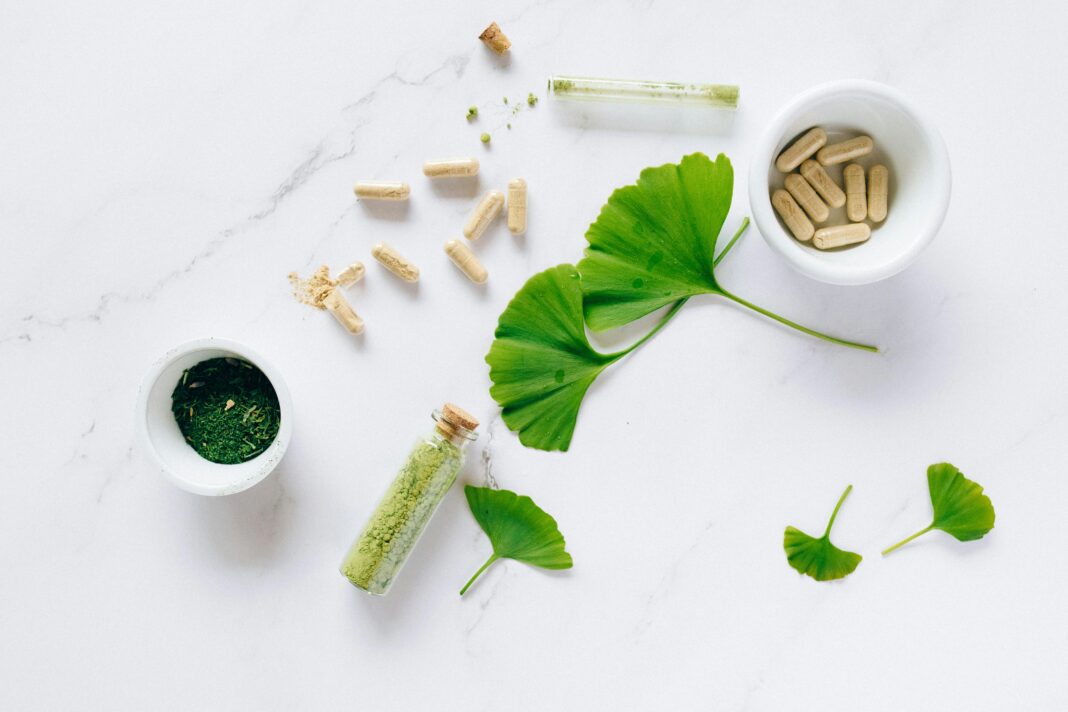Attention-Deficit/Hyperactivity Disorder (ADHD) is a neurodevelopmental condition affecting millions of children and adults worldwide. Characterized by symptoms such as inattention, impulsivity, and hyperactivity, ADHD can significantly impact daily life, academic performance, and relationships. While conventional treatments like stimulant medications (e.g., Adderall, Ritalin) and behavioral therapy are commonly prescribed, many individuals seek natural alternatives due to concerns about side effects, dependency, or personal preference for holistic approaches.

This comprehensive guide explores evidence-based natural remedies, dietary supplements, and lifestyle modifications that can help manage ADHD symptoms effectively. Each section is backed by scientific research, clinical studies, and expert opinions to ensure credibility and reliability.
Understanding ADHD: Causes and Conventional Treatments
What Is ADHD?
ADHD is a brain-based disorder that affects executive functions, including:
- Focus and attention span
- Impulse control
- Working memory
- Emotional regulation
There are three primary subtypes:
- Predominantly Inattentive (difficulty focusing, easily distracted)
- Predominantly Hyperactive-Impulsive (restlessness, impulsive actions)
- Combined Type (a mix of both inattention and hyperactivity)
Root Causes of ADHD
While the exact cause remains unclear, research suggests multiple contributing factors:
- Genetics (family history increases risk)
- Brain structure differences (lower dopamine and norepinephrine activity)
- Environmental factors (lead exposure, prenatal smoking, food additives)
- Nutritional deficiencies (omega-3s, zinc, magnesium, iron)
Limitations of Conventional ADHD Medications
Stimulant medications (e.g., methylphenidate, amphetamines) are effective for many but come with drawbacks:
- Side effects (insomnia, appetite loss, anxiety)
- Risk of dependency (especially in teens and adults)
- Not a permanent solution (symptoms return when medication stops)
This has led many to explore natural, sustainable alternatives that address underlying imbalances without harsh side effects.
Top Evidence-Based Natural Supplements for ADHD
1. Omega-3 Fatty Acids (EPA & DHA) – The Brain’s Building Blocks
Why They Work:
Omega-3s, particularly EPA (eicosapentaenoic acid) and DHA (docosahexaenoic acid), are crucial for brain function. Studies show that individuals with ADHD often have lower omega-3 levels, which may contribute to poor focus and impulsivity.
Key Benefits:
- Enhances dopamine and serotonin function (critical for attention and mood)
- Reduces brain inflammation (linked to cognitive dysfunction)
- Improves working memory and learning ability
Clinical Evidence:
- A 2017 meta-analysis in Neuropsychopharmacology found that omega-3 supplementation significantly reduced ADHD symptoms in children, especially those with low baseline levels.
- Another study in The Journal of Pediatrics (2020) reported that high-dose EPA (1,000 mg/day) improved focus better than traditional treatments in some cases.
Best Sources:
- Fatty fish (wild-caught salmon, mackerel, sardines)
- Algae oil (vegan alternative)
- High-quality fish oil supplements (look for at least 500 mg EPA/DHA per serving)
Recommended Dosage:
- Children: 500–1,000 mg combined EPA/DHA daily
- Adults: 1,000–2,000 mg combined EPA/DHA daily
Potential Side Effects:
- Mild digestive discomfort (if taken on an empty stomach)
- Blood-thinning effects (consult a doctor if on anticoagulants)
2. Zinc – The Dopamine Regulator
Why It Works:
Zinc is essential for neurotransmitter synthesis, particularly dopamine, which is often dysregulated in ADHD. Low zinc levels correlate with increased hyperactivity and poor impulse control.
Key Benefits:
- Enhances the effectiveness of ADHD medications (studies show stimulants work better with adequate zinc)
- Reduces oxidative stress in the brain
- Supports immune function (many with ADHD have comorbid immune issues)
Clinical Evidence:
- A 2015 study in Annals of Medical & Health Sciences Research found that zinc supplementation (15 mg/day for 6 weeks) reduced hyperactivity and impulsivity in children with ADHD.
- Research in Progress in Neuro-Psychopharmacology & Biological Psychiatry (2019) noted that zinc deficiency worsens ADHD symptoms and supplementation can help.
Best Sources:
- Pumpkin seeds (one of the highest natural sources)
- Grass-fed beef
- Lentils and chickpeas
- Zinc bisglycinate supplements (better absorbed than zinc oxide)
Recommended Dosage:
- Children: 10–20 mg/day (under supervision)
- Adults: 15–30 mg/day
Caution:
- Excessive zinc can cause copper deficiency (balance with 1–2 mg copper if taking long-term)
3. Magnesium – The Natural Calming Mineral
Why It Works:
Magnesium is a critical cofactor for GABA, the brain’s primary calming neurotransmitter. Many with ADHD are deficient, leading to irritability, anxiety, and sleep disturbances.
Key Benefits:
- Reduces hyperactivity and restlessness
- Improves sleep quality (especially with ADHD-related insomnia)
- Helps regulate cortisol (stress hormone) levels
Clinical Evidence:
- A 2016 study in Magnesium Research found that magnesium supplementation (200 mg/day) significantly improved attention and reduced hyperactivity in children with ADHD.
- Research in Nutrients (2020) confirmed that magnesium + vitamin B6 reduced ADHD symptoms better than magnesium alone.
Best Forms of Magnesium:
- Magnesium glycinate (best for relaxation and sleep)
- Magnesium L-threonate (crosses the blood-brain barrier for cognitive benefits)
- Magnesium citrate (good for digestion but may cause loose stools)
Recommended Dosage:
- Children: 100–200 mg/day
- Adults: 300–400 mg/day
Best Taken: At night (helps with sleep regulation)
4. Iron (Ferritin) – The Focus Booster
Why It Works:
Iron is essential for dopamine production, and low ferritin (stored iron) levels are common in ADHD. Studies suggest up to 84% of children with ADHD have low ferritin, contributing to fatigue and poor concentration.
Key Benefits:
- Increases dopamine synthesis
- Reduces restless leg syndrome (common in ADHD)
- Improves cognitive stamina
Clinical Evidence:
- A 2018 study in Pediatric Neurology found that iron supplementation improved ADHD symptoms in 70% of cases when ferritin levels were below 30 ng/mL.
- Research in Journal of Child Neurology (2019) showed that correcting iron deficiency reduced ADHD medication dosage needs.
Best Sources:
- Grass-fed liver (highest natural source)
- Spinach and lentils
- Iron bisglycinate supplements (gentler on digestion than ferrous sulfate)
Important:
- Get bloodwork first (ferritin levels should be checked before supplementing)
- Avoid excess iron (can be toxic; ideal ferritin range is 50–100 ng/mL)
5. Probiotics – The Gut-Brain Connection
Why They Work:
The gut microbiome influences neurotransmitter production, and imbalances are linked to ADHD. Probiotics help reduce inflammation and improve serotonin/dopamine balance.
Key Benefits:
- Reduces hyperactivity and anxiety
- Improves digestion (many with ADHD have food sensitivities)
- Enhances nutrient absorption (critical for brain health)
Clinical Evidence:
- A 2020 study in Scientific Reports found that probiotic strains like Lactobacillus rhamnosus improved attention and reduced impulsivity in children with ADHD.
- Research in Brain, Behavior, and Immunity (2021) linked gut dysbiosis to increased ADHD severity.
Best Strains for ADHD:
- Lactobacillus rhamnosus (reduces anxiety)
- Bifidobacterium longum (supports dopamine production)
- Saccharomyces boulardii (helps with gut inflammation)
Recommended Dosage:
- 10–20 billion CFU daily (look for multi-strain formulas)
Best Taken: With meals for optimal gut colonization.
Lifestyle and Behavioral Strategies for ADHD
1. The ADHD Diet: Foods to Eat and Avoid
Foods That Worsen ADHD:
- Artificial food dyes (Red 40, Yellow 5) – Linked to hyperactivity
- Processed sugars – Cause blood sugar spikes and crashes
- Gluten and dairy (for sensitive individuals) – Can trigger brain fog
Foods That Help ADHD:
- High-protein breakfasts (eggs, Greek yogurt) – Stabilizes dopamine
- Omega-3-rich foods (salmon, walnuts) – Supports brain function
- Leafy greens and berries – High in antioxidants
The Feingold Diet:
Eliminates artificial additives and has shown 30–50% symptom improvement in some children.
2. Exercise – The Natural ADHD Medication
Why It Works:
- Boosts dopamine and norepinephrine (like stimulant meds, but naturally)
- Improves executive function (planning, impulse control)
Best Exercises for ADHD:
- Aerobic exercise (running, swimming) – 30 mins daily
- Martial arts (taekwondo, karate) – Enhances focus and discipline
- Yoga and mindfulness – Reduces stress and impulsivity
Study Findings:
- Journal of Attention Disorders (2019) found that exercise was as effective as low-dose Ritalin in improving focus.
3. Sleep Optimization – Critical for ADHD Brains
Why Sleep Matters:
- Poor sleep worsens impulsivity and inattention
- Melatonin production is often disrupted in ADHD
Natural Sleep Aids:
- Magnesium glycinate (relaxes muscles and mind)
- Chamomile tea (calms nervous system)
- Blue light blocking glasses (improves melatonin release)
Study Findings:
- Sleep Medicine Reviews (2020) confirmed that sleep interventions reduced ADHD symptoms by 40%.
FAQs on Natural ADHD Remedies
Q1: Can natural remedies replace ADHD medication?
A: For some, yes. Others use them alongside meds to reduce dosage. Always consult a doctor before making changes.
Q2: How long until I see results from supplements?
A: Most take 4–8 weeks (omega-3s, zinc, magnesium). Consistency is key.
Q3: Are there risks with natural ADHD treatments?
A: Generally safe, but high doses of iron or zinc can be harmful. Blood tests help avoid toxicity.
Q4: What’s the fastest natural remedy for ADHD?
A: Caffeine (in moderation) can boost focus short-term, but long-term solutions like omega-3s are better.
Q5: Do adults with ADHD benefit from these?
A: Absolutely. Many adults see improved focus, mood, and energy with these strategies.
Final Thoughts: A Holistic Approach to ADHD
Natural remedies for ADHD—omega-3s, zinc, magnesium, iron, probiotics, diet, and exercise—offer a science-backed way to manage symptoms without relying solely on medication. While results vary, combining these approaches under professional guidance can lead to long-term improvements in focus, behavior, and overall well-being.
For personalized advice, consult a functional medicine doctor or nutritionist to tailor these strategies to your needs.

